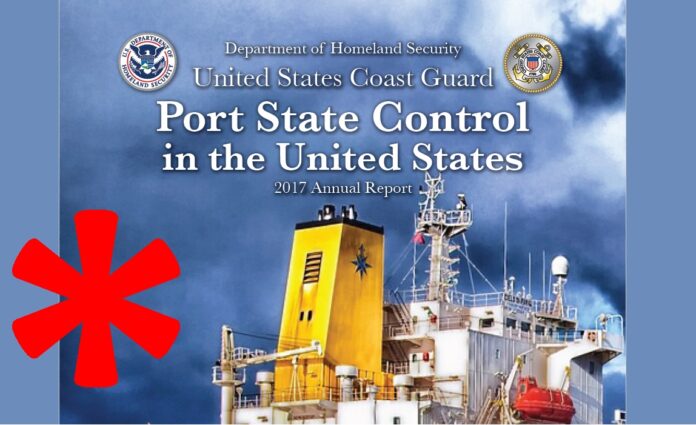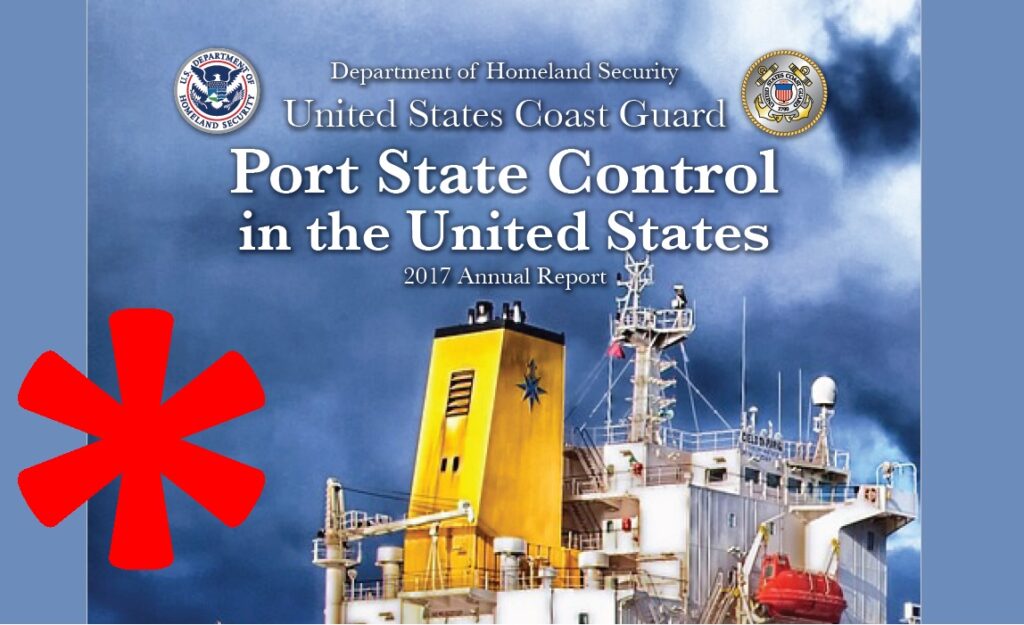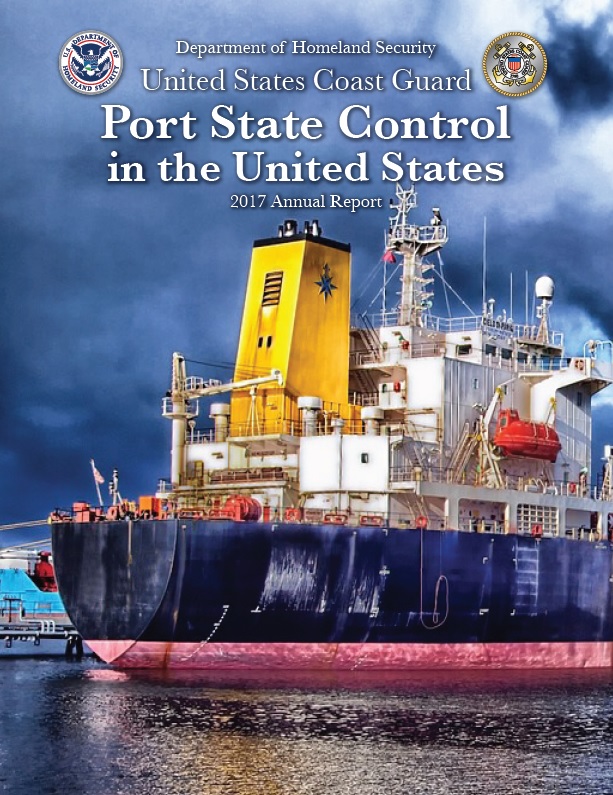
(www.MaritimeCyprus.com) The USCG Office of Commercial Vessel Compliance announced the release of the U.S. Port State Control Annual Report for 2017.
This report marks another year of PSC activities and provides the global maritime industry key statistics and compliance trends in relation to compliance with U.S. and international regulations, such as the Safety of Life at Sea (SOLAS), International Convention for the Prevention of Pollution from Ships (MARPOL), and the International Ship and Port Facility Security Code (ISPS).
Vessel Arrivals Increased and Examinations Decreased, Detentions Decreased
In 2017, a total of 10,190 individual vessels, from 84 different flag administrations, made 83,566 port calls to the United States. The Coast Guard conducted 9,105 SOLAS safety exams and 8,793 ISPS exams on these vessels. These exam numbers decreased slightly from the 2016 totals of 9,390 SOLAS and 8,823 ISPS. The total number of ships detained in 2017 for environmental protection and safety related deficiencies decreased from 98 to 91 with the total number of ships detained in 2017 for security related deficiencies decreasing from 8 to 6. The annual detention rate of 0.99% is lowest ever. While the three-year rolling average detention ratio dropped slightly for the second year in a row from 1.58% to 1.40%.
Flag Administration Safety and Security Performance
Flag administration safety performance for 2017 increased, with the overall annual detention rate dropping from 1.05% to 0.99%. The three-year rolling detention ratio also decreased from 1.58% to 1.40%. The flag administrations of Belize, Samoa, and Taiwan were removed from our Targeted Flag List for 2017. Flag administration security performance for 2017 increased ever so slightly as well, with the annual Control Action Ratio (CAR) decreasing from 0.09% to 0.06%. The three-year rolling average CAR has remained nearly steady dropping from 0.11% to 0.10%. Additionally, there are no flag administrations listed on ISPS/MTSA targeted matrix.
Detention Appeals
In addition to receiving appeals contesting the overall merits of a detention, we also receive appeals requesting the removal of a party’s association to a detention. In 2017, the Coast Guard received a total of 21 detention appeals. Eleven appeals were submitted challenging the overall merits of the detention. At the time of publication of this report, three appeals were granted and eight were denied. For those parties appealing their association with a detention, ten total were received. Of those ten, two were denied and eight were granted.
QUALSHIP 21 and E-Zero Programs
The QUALSHIP 21 (QS21) program ended calendar year 2017 with an enrollment of 2,013 vessels. For 2016 we had only one flag administration lose its QS21 eligibility over the previous year. Even with the
slight drop in detentions in 2017, four flag administrations lost their eligibility while two additional flags became eligible. We would like to welcome the flag administrations of France and the Netherlands for
becoming QS21 eligible this year. We invite you to take a moment to see the full list of QS21 flag administrations in Chapter 2 of this report.
Port State Control Safety and Environmental Protection Compliance Targeting Matrix
Lastly it is very interesting to review the Port State Control Safety and Environmental Protection Compliance Targeting Matrix, via which USCG determines vessels priority for boarding and PSC inspection.
Click on below image to download full report:
Source: USCG















